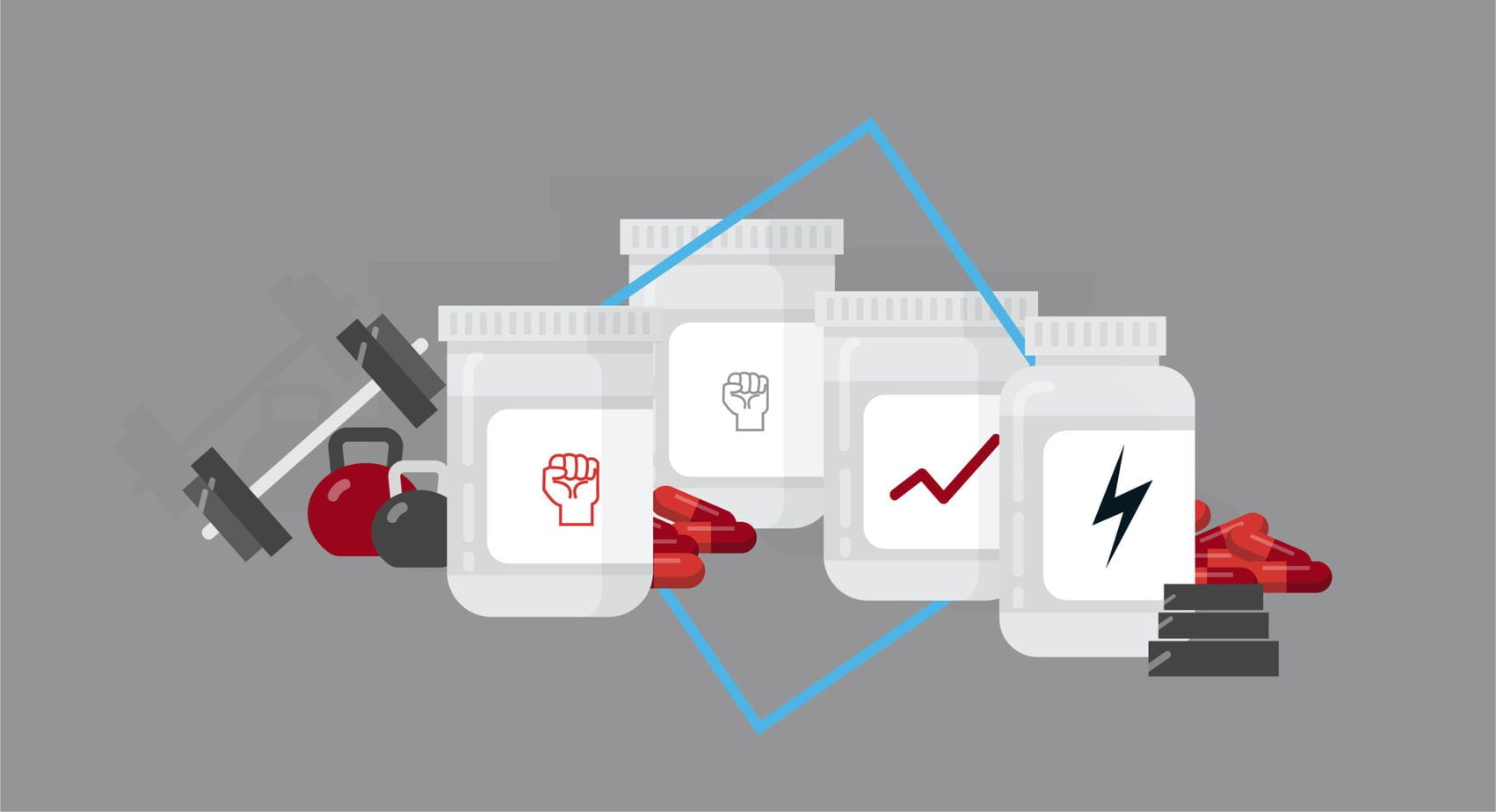Andarine S4 is a selective androgen receptor modulator (SARM) that has been gaining attention in the fitness community for its potential benefits, including increased muscle mass and reduced fat. However, like all compounds that affect hormone levels, there are possible side effects associated with its use. It’s important for users to be aware of these risks before starting a cycle with Andarine S4. While some users report positive results in terms of body composition, the side effects can vary widely from person to person, and misuse can lead to more serious health concerns.
Understanding the chemical profile and mechanism of action is crucial in predicting and managing Andarine S4 side effects. As a SARM, Andarine S4 is designed to selectively bind to androgen receptors in the body, which can lead to anabolic activity in bone and muscle tissue while aiming to minimize the impact on other organs. This selectivity is intended to reduce the occurrence of side effects typically associated with steroids. However, Andarine S4 is not free from adverse effects, which may include visual disturbances, suppressed testosterone levels, and liver toxicity. It is essential for users to follow proper dosage and cycle guidelines to mitigate these risks and to be informed about the current regulatory status and legal implications associated with S4 use.
Quick Summary
- Andarine S4, a selective androgen receptor modulator, is associated with potential benefits and risks.
- Side effects can range from vision disturbances to hormonal imbalances, emphasizing cautious usage.
- Proper dosing and understanding regulatory and legal aspects are critical for safe administration.
Chemical Profile and Mechanism of Action

Selective androgen receptor modulators (SARMs) like Andarine S4 are compounds engineered to target specific tissues for growth stimulation, avoiding the broader impact of traditional steroids. They exhibit distinct chemical profiles and interact with androgen receptors in a particular manner.
Understanding SARMs
SARMs are a class of therapeutic compounds with properties similar to anabolic steroids but with reduced androgenic properties. This allows SARMs to target tissues more selectively, promoting anabolic effects in muscles and bones without many of the side effects associated with steroid use. Andarine, specifically, is a SARM developed for muscle wasting and osteoporosis.
- Chemical Structure: Andarine, also known as S4, possesses a unique chemical structure that enables it to bind to androgen receptors with high affinity.
- Specificity: SARMs like Andarine typically demonstrate high tissue specificity, which is the result of the compound’s interaction at the receptor level, dictating its selective effects.
Andarine S4 and Androgen Receptors
Andarine S4 operates by binding to androgen receptors in skeletal muscle and bone tissues. Its action is designed to mimic the action of testosterone, with a focus on promoting anabolic activity that encourages muscle growth and bone health.
- Receptor Activation: When Andarine binds to the androgen receptor, it leads to a conformational change in the receptor, which triggers the transcription of specific genes responsible for muscle and bone growth.
- Selectivity: The selectivity of Andarine is attributed to its partial agonist activity at the androgen receptor, differentiating it from full agonists like testosterone and leading to fewer side effects.
Common Andarine S4 Side Effects

Andarine S4, a selective androgen receptor modulator (SARM), has been associated with several side effects, particularly vision-related issues, natural testosterone suppression, and potential impacts on cholesterol and liver health.
Vision-Related Side Effects
Users of Andarine S4 may experience changes in vision. Visual disturbances such as difficulty adapting to night vision and a yellow tint to vision are commonly reported. These side effects are generally reversible upon cessation of the SARM.
Suppression of Natural Testosterone
Andarine S4 can lead to testosterone suppression. This occurs as the body’s natural hormone production is altered, which can result in a decrease in testosterone levels. Short-term use usually leads to a mild suppression, but long-term or high dosages can enhance this effect.
Impact on Cholesterol and Liver Health
Andarine S4 may affect cholesterol levels and liver health. Studies indicate a potential for altered HDL and LDL cholesterol, which can influence heart health. Liver enzymes might also elevate, indicating stress on liver function, although liver damage is typically not severe.
References
Andarine Dosage and Cycle Guidelines

With Andarine S4, accurate dosing and cycle adherence are essential to maximize benefits and minimize potential side effects. It’s vital to understand the recommended dosages and the importance of cycle length and post cycle therapy when using this compound.
Recommended Dosages
Initial dosing for those new to Andarine should start at a conservative level. Most users find efficacy with dosages between:
- Mild to Moderate Effect: 25mg per day
- Enhanced Performance: 50mg per day
Some experienced users may increase their daily intake to 75mg, but this should be approached with caution.
Dosage Splitting: To manage plasma levels and reduce potential side effects, it’s common practice to split the daily dosage into multiple administrations, often once in the morning and once in the evening.
Cycle Length and Post Cycle Therapy
Cycle Length:
- Standard cycles of Andarine typically last between 6 to 8 weeks.
- Extended periods of use are generally not recommended due to the potential for natural testosterone suppression.
Post Cycle Therapy (PCT):
- After completing an Andarine cycle, PCT is critical.
- A typical PCT regimen might last 4 to 6 weeks.
- This helps to restore natural testosterone production and minimize any potential hormonal imbalances.
In any cycle, it is crucial to monitor one’s physiological responses and adjust dosages accordingly. Professional advice should be sought before starting any new supplement regimen.
Comparative Analysis with Other SARMS

In evaluating the side effects of Andarine S4, it is imperative to contrast its profile with prominent SARMs like Ostarine and Cardarine. These comparisons help provide context regarding Andarine’s place within the broader SARMs landscape, particularly focusing on its efficacy and safety.
Comparing Andarine to Ostarine and Cardarine
Andarine (S4) vs. Ostarine: Both Andarine and Ostarine are selective androgen receptor modulators that demonstrate an ability to increase muscle mass and strength. However, Andarine is typically recognized for greater potency in muscle and strength gains but comes with a higher risk of side effects, such as alterations in vision. Ostarine, on the other hand, is often reported to be milder, with fewer side effects, making it a preferred choice for beginners or those looking for moderate enhancements.
Andarine (S4) vs. Cardarine: Unlike Andarine, which exerts its effects directly on androgen receptors, Cardarine is not a SARM but a PPARδ receptor agonist. It is renowned for its fat-burning capabilities and may be used in cutting cycles. Andarine contributes to both muscle building and fat loss but with a distinct risk profile including potential androgenic side effects, which are not observed with Cardarine.
Pros and Cons Regarding Efficacy
Efficacy: Andarine is potent and effective for muscle mass enhancement and fat loss at relatively low doses compared to steroids. Its anabolic effects are substantial when compared to Ostarine but may fall short compared to the fat-burning capabilities of Cardarine. The efficacy of Andarine is dose-dependent, with side effects becoming more pronounced at higher doses.
Pros:
- Increased muscle mass
- Improved strength
- Support in fat loss
Cons:
- Higher possibility of side effects, such as vision disturbances
- Possible need for post cycle therapy due to suppressive nature
References
- “Selective androgen receptor modulators: current knowledge and clinical applications.” (https://www.ncbi.nlm.nih.gov/pmc/articles/PMC6326857/)
- “Androgenic and anabolic activities of Bulbine natalensis stem in male Wistar rats.” (https://www.sciencedirect.com/science/article/abs/pii/S0378874110000839)
- “GW 501516, a PPARδ agonist, improves insulin sensitivity, promotes performance, and induces weight loss in obese mice.” (https://www.ahajournals.org/doi/full/10.1161/01.atv.0000258664.87265.01)
Regulatory Status and Legal Implications

Andarine S4, also known as S-40503 or S4, faces complex regulatory considerations and varied legal statuses across the globe. The compound’s acceptance and legality significantly impact its use in both clinical and athletic settings.
Legal Status Around the World
In the United States, Andarine is not approved by the Food and Drug Administration (FDA) for medical use, and it is classified as a Schedule III controlled substance under the Designer Anabolic Steroid Control Act of 2014. This classification makes the distribution and possession without a prescription illegal. In contrast, Andarine’s legal status may vary internationally, with some countries having less stringent controls or different regulatory frameworks for designer drugs.
WADA and Sports Organizations Viewpoint
The World Anti-Doping Agency (WADA) lists Andarine as a prohibited substance both in- and out-of-competition due to its anabolic properties. All athletes subject to WADA regulations are prohibited from using Andarine. The United States Anti-Doping Agency (USADA), alongside other national anti-doping organizations, follows WADA’s Prohibited List. A positive test for Andarine can result in sanctions, including disqualification and suspension from competitive sports. Sporting organizations worldwide uphold a strict stance on doping, reflecting WADA’s commitment to fair play and athlete health.
References
- FDA Schedule of Controlled Substances: https://www.deadiversion.usdoj.gov/schedules/
- WADA 2024 Prohibited List: https://www.wada-ama.org/en/what-we-do/the-prohibited-list
Frequently Asked Questions

This section addresses commonly reported side effects of S4 Andarine and other pertinent questions that arise from its use.
What are the common side effects associated with the use of S4 Andarine?
Individuals taking S4 Andarine may experience reduced strength, lethargy, and decreased muscle mass over time. Additional effects can include jaundice and changes in liver enzyme levels, indicative of possible liver distress.
How might S4 Andarine affect vision?
S4 Andarine has been reported to cause vision disturbances. These can include a yellow tint or difficulty adjusting from darkness to light, stemming from S4’s binding to ocular receptors.
Can S4 Andarine use lead to hormonal imbalances, such as testosterone suppression?
Yes, using S4 Andarine can suppress natural testosterone production, potentially necessitating post-cycle therapy to restore hormonal balance.
What potential benefits can be expected from S4 Andarine supplementation?
S4 Andarine is purported to support fat reduction and increase muscle mass. However, they should consider potential side effects and the need for further research into its efficacy and safety.
Is there a link between S4 Andarine and an increased risk of cancer?
Animal studies suggest a potential risk of cancer with long-term S4 Andarine use; however, definitive conclusions cannot be drawn for human subjects without more extensive research.
How does the efficacy of S4 Andarine compare to other SARMs like Cardarine and Ligandrol?
While S4 Andarine, Cardarine, and Ligandrol are all SARMs, they differ in strength and effects. S4 is less potent than Ligandrol in muscle building but comparable to Cardarine in fat loss efficiency.
Dr. Grant Fourie, a specialist in male hormones, is based in Cape Town, South Africa. He provides comprehensive treatments for conditions related to low testosterone, such as erectile dysfunction, fatigue, and mood changes. His methods include hormone replacement therapy and other modern treatment options.
Contact me via email or phone to book personal appointment in my clinic: The Village Square, Cape Town - South Africa



